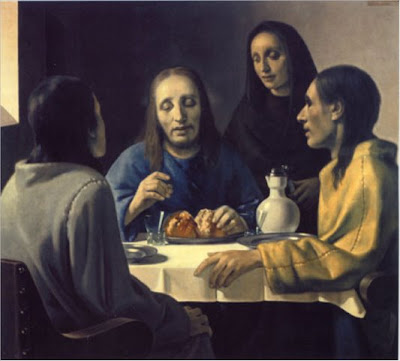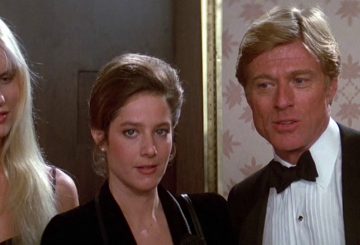“Shortly after the liberation of Holland, Han van Meegeren, a painter and art dealer living in Amsterdam was arrested for collaboration with the Third Reich. He was accused among other things of having sold a Vermeer to Reichsmarshal Hermann Göring — essentially of having plundered the patrimony of his homeland for his own benefit and the benefit of the Nazis. To save his skin — the penalty for collaborating was imprisonment or hanging — Van Meegeren revealed that the painting sold to Göring and many other paintings that he had sold as works of the Dutch masters were forgeries. He had painted all of them.
On July 21, 1945, The New York Times weighed in on the story: “Authenticity of Several Paintings Sold as Vermeers Is Questioned”
The authenticity of several paintings introduced to the public as newly discovered works of Jan Vermeer, seventeenth century Dutch master, is in question and the case has become a national sensation in England. Originally many of these paintings were introduced to the public by Hans van Meegeren (sic), modern Dutch painter. Soon after the liberation of the Netherlands Van Meegeren was arrested for collaboration with the Germans and is now in prison awaiting trial. The press agency Anepaneta, which operates as a government mouthpiece, asserted a few days ago that Van Meegeren had made a statement that he himself painted the supposed Vermeers… Art experts say they are not convinced that the statements attributed to Van Meegeren are true. The director of the Rotterdam Museum said the prisoner was a fantasist who had a grudge against museums and similar institutions. A painting restorer in The Hague said that if one of the disputed works which he transferred to new canvas recently, “Pilgrims to Emmaus” [“Supper at Emmaus”] was indeed a forgery, then the painter must be considered a genius in that particular line.
“A genius in that particular line.” But what “particular line” is this? If the painting was indeed a forgery, then must the painter be considered a genius?”
Documentary-maker and essayist Errol Morris‘s seven-part essay on the forgeries of Han van Meegeren


